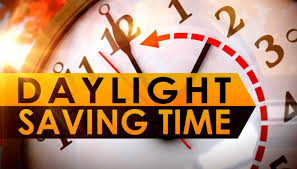Daylight Savings Time Harming Health Doctors Claim
Did you know that the original idea of changing the clock in spring and fall was that of the venerable Benjamin Franklin? He published the idea back in April 1784 in the Journal de Paris in an article titled ‘An Economical Project for Diminishing the Cost of Light’.
Franklin’s idea was largely ignored until William Willett, an Englishman who pushed the idea in 1907, but again, the idea was not taken seriously. However, in 1916, the concept was introduced in the British Parliament as the ‘British Summer Time’.
Here in the United States, the concept of daylight savings time was introduced in Congress during the later stages of World War I. The impetus for the legislation was to conserve energy in order to help the war effort. Shifting the clock began to take place in many places in the US, but not all, causing some confusion.
In 1966, Congress passed the Uniform Time Act, which was designed to end most of the confusion, but the act also allowed states to opt out of daylight savings time. After many places in the US saw an increase in energy use due to the changing clocks, in 1967, Arizona opted out of daylight savings time and continues to opt out today.
I lived most of my life I Arizona and was used to not changing the clock twice a year and often wondered why the rest of the nation continued to do so. I now live in the Midwest and am a slave to the ever changing clock, which I still find to be ridiculous.
Now, a number of doctors have joined together to claim that changing the clock twice a year with daylight savings time is actually harmful to the health of many, as reported:
Doctors writing in a leading medical journal have put forth a case for doing away with daylight saving time (DST) transitions. They argue that these annual transitions to and from DST misalign biological clocks, with long term consequences for health…
“It’s not 1 hour twice a year,” says Beth A. Malow, a professor of neurology at Vanderbilt University Medical Center in Nashville, TN. She adds, “It’s a misalignment of our biologic clocks for 8 months of the year.”
She explains that DST transitions can affect a number of brain functions, including alertness and energy levels.
“When we talk about DST [transitions] and the relationship to light,” Prof. Malow continues, “we are talking about profound impacts on the biological clock, which is a structure rooted in the brain.”
In a recent JAMA Neurology paper, she and her colleagues reviewed evidence on how DST transitions impact processes that involve the brain, heart, sleep patterns, and genes that control the sleep-wake cycle.
The paper’s authors point out that they are concerned with the effects of annual transitions to and from DST, and not what might result from a permanent adoption of DST…
It’s been proven that daylight savings time does NOT save energy and now may be detrimental to our health, so I ask, as I often have, why do we still have it?









Recent Comments